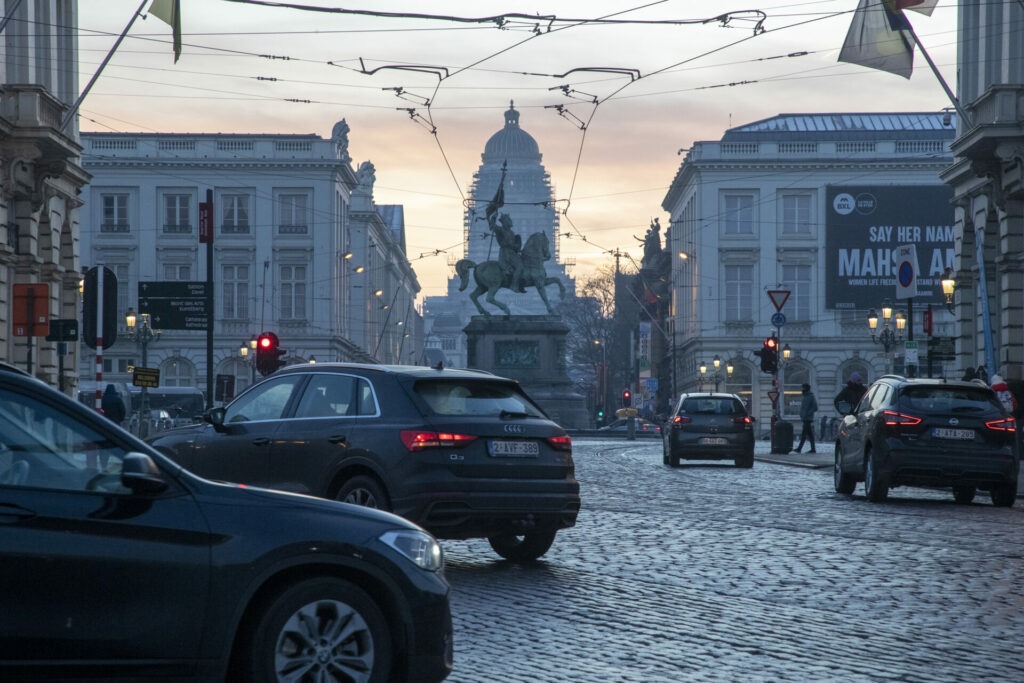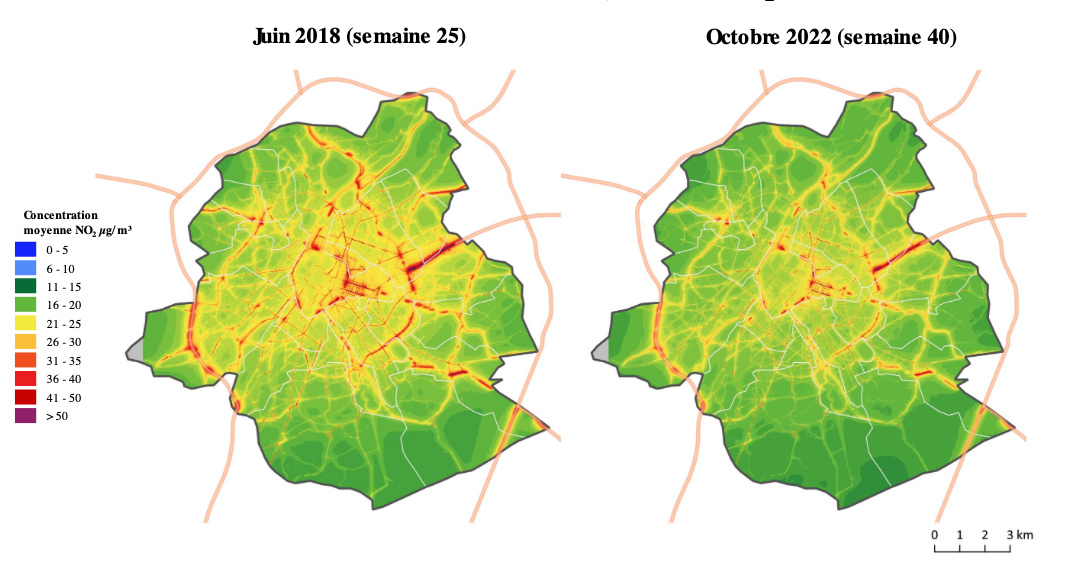Brussels' low-emission zones (LEZs) have helped achieve a reduction of up to 30% in nitrogen dioxide (NO₂) along the main roads since 2018, improving the air quality in a region where around 1,000 premature deaths per year are caused by pollution.
As in many cities, road traffic is one of the biggest emitters of atmospheric pollutants contributing to harmful pollution levels in the Belgian capital. To address this major public health concern, Brussels introduced LEZs in 2018. The measures are bearing fruit, Brussels Environment said on Thursday.
"Guaranteeing the right of Brussels residents to breathe clean air is one of my priorities," Alain Maron, Brussels Minister for the Environment and Climate Transition, said. "The gradual phasing out of cars will enable us to avoid 110 premature deaths a year and €300 million in healthcare costs."
Brussels Environment's latest monitoring revealed that since the introduction of LEZs, they have reduced NO2 concentrations along the capital's main roads by up to 30%. Similar and even larger reductions have been observed for other pollutants.
"These results confirm that the LEZ is a very powerful lever in the fight against air pollution," said Pierre Dornier, director of the non-profit organisation Les chercheurs d'air.
"This should serve as a reminder to our current and future elected representatives: supporting this measure means protecting the health of the people of Brussels in a very real and effective way."
Banning polluting cars
The LEZs restrict access to the most polluting vehicles. The measure affects all 19 municipalities of the Brussels-Capital Region but excludes the large Ring and access roads to transit car parks.
The number of vehicles impacted by the measure was expanded in July last year as to include Euro 4 standard engines – the last generation of vehicles not to be fitted with a particle filter, meaning they are more polluting. These vehicles face fines of up to €350 when driving in the LEZs.
Between June 2018 and September 2022, the proportion of diesel vehicles on the road has almost halved, while the last generation of diesel vehicles that don't systematically have a particulate filter almost entirely disappeared from roads.
In 2022, all stations operated by Brussels Environment measuring concentrations of pollutants complied with the annual European standard of 40 µg/m³ for NO2. However, the concentrations measured remain well above the value of 10 µg/m³ recommended by the World Health Organization (WHO).

A sign that signals the end of the LEZ. Credit: Belga/ Nicolas Maeterlinck
The Brussels region aims progressively strengthen LEZ measures until 2035. The next milestone comes in 2025, when euro 5 diesel and euro 2 petrol cars, as well as heavy goods vehicles, two-wheelers, motorised tricycles and quadricycles will all have to adhere to the restrictions. The cars that will still be allowed on the road from that date will emit 40% less NOx.
Related News
- Air pollution worsened slightly in Belgium after the pandemic
- Flanders launches plan to curb environmental health risks
The phase-out of all internal combustion engine vehicles, except heavy goods vehicles and coaches, is scheduled for 2035.
The Brussels Region has proposed several accompanying measures, such as spending nearly 20% of the regional budget to improve the supply, quality and frequency of regional public transport and continuing to offer the Bruxell'air bonus for households that are giving up their car.


